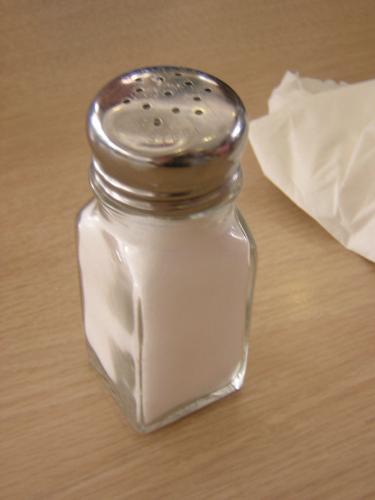Are all salts the same?
The most common salts used in kitchens today are sea salt, kosher salt and table salt, but are they all equal?
 Michigan State University Extension recommends limiting your sodium intake. However, if you’re going to use salt, what should you choose? Sea salt is marketed as the healthy choice for salts. It’s natural and better for you. But is this really true? What about table salt? Should it be iodized, or not?
Michigan State University Extension recommends limiting your sodium intake. However, if you’re going to use salt, what should you choose? Sea salt is marketed as the healthy choice for salts. It’s natural and better for you. But is this really true? What about table salt? Should it be iodized, or not?
The most common salts used in kitchens today are sea salt, kosher salt and table salt. The only way that one salt can claim to be healthier than another is in the process. Sea salt and kosher salt can be purchased unrefined, where table salt is refined to remove trace minerals and to add an anti-clumping agent.
Table salt is used to flavor food and for baking. Salt is used to enhance flavors in baking, but not to be the main attraction, so you want a salt that is fine and mixes in with other ingredients. The coarse salt crystals of sea salt and kosher salt make it ideal for seasoning the surface of foods during the cooking or baking process because they take longer to absorb. The large crystals dissolve more slowly and it can absorb moisture from food. For example, if you season a steak with table salt, it will quickly be absorbed to the mean, giving it a salty taste, where the slower dissolving crystal adds flavor to the surface of the meat.
All three options come from natural sources. Sea salt and kosher salt are from evaporated salt water and table salt is mined from underground deposits. All three options are also available with or without iodine. This is called iodized. Table salts are most likely to be iodized. Be sure to read package labels when purchasing to make sure you are getting what you’d like.
Why do we have iodized salt? Years ago people suffered from iodine deficiencies, which caused a thyroid gland disease called goiter. Following the USDA’s MyPlate, a diet including all of the food groups, should allow you to naturally get the iodine you need. The Office of Dietary Supplements’ Iodine Fact Sheet shares that iodine is necessary for our bodies and is added to iodized salt, but it can be found naturally in fish, seaweed, seafood and dairy products like milk and cheese.
See the table below for comparisons.
|
Salt Questions |
Sea Salt |
Kosher Salt |
Table salt |
|
Where’s it from |
Evaporation of water from saltwater lakes or ocean |
Evaporation of water from saltwater lakes or ocean |
Mined from underground salt deposits |
|
What’s in it |
Sodium and chloride, tiny amounts of iron, sulfur, magnesium and other trace elements |
Sodium and chloride |
Sodium and chloride |
|
Processing |
Unrefined, little processing leaves mineral deposits behind which add flavor |
Unrefined |
Refined, anti-clumping agent added |
|
Texture |
Coarse |
Coarse |
Fine |
|
Iodine |
Trace amounts |
No iodine |
Most is iodized, meaning iodine, an nutrient that helps maintain a healthy thyroid, is added |
|
Sodium |
375mg per gram |
375mg per gram |
375mg per gram |



 Print
Print Email
Email

